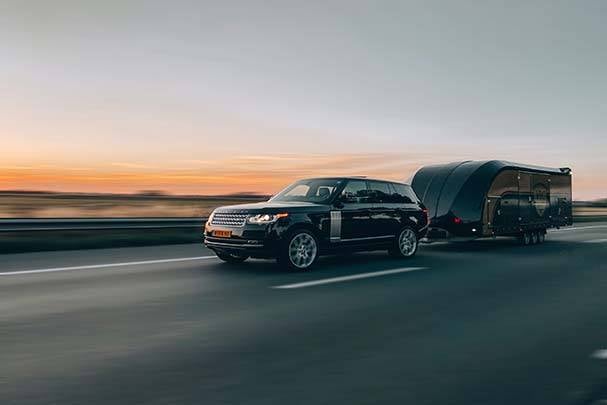
Nationwide Vehicle Contracts talks you through the safety checks you need to complete when towing a trailer with your car.
You might need to tow a trailer if you're moving house, taking rubbish to the tip, or if you're a sole trader and need to move goods from one location to another.
Having a trailer removes the cost of having to pay someone else to do your heavy lifting, but there are standards you must abide by when on the roads.
To ensure you know what you need to check before you set off, Nationwide Vehicle Contracts has gathered a list of all the safety checks to make sure your trailer is road legal.
Find out the facts
The first thing you need to do before setting up/loading your trailer is to ensure you know your car's towing capacity. You should be able to find this in your car's handbook or on the VIN plate. If you can't find this information, your car is probably unsuitable for towing.
Next, you need to check whether you have the correct driver's license:
- If you passed your test before 1 January 1997, you're allowed to drive a vehicle and trailer combination of up to 8,250kg maximum authorised mass (MAM)
- If you passed after 1 January 1997, you're allowed to drive a vehicle and trailer combination of up to 3,500kg MAM
Check towing speeds
Once you've loaded your trailer and know the weight, you'll need to abide by the towing speed limits.
For a car towing a trailer, the speed limit remains at 30mph in built-up areas but drops to 50mph on single carriageways and 60mph on dual carriageways and motorways.
More information can be found on the government website.
Distribute the load evenly
When loading your trailer, it's crucial that you distribute the weight across the whole surface area.
This will prevent your trailer from toppling over when you go around a sharp corner or apply the breaks suddenly.
Secure the load correctly
Securing the trailer will prevent the load from falling into the road and causing a massive danger to other road users.
The best way to secure your load is by using either 'over-the-top' lashings, cargo kites, rope, or direct lashings to specific anchor points.
You can buy a pack of luggage elastics for as little as £5 from the RAC.
Ensure the lights are working
Check that there's no damage to the trailer's indicators and lights and that they all work correctly. A quick test before you set off will suffice.
This will keep you and other road users safe.
Make sure the correct number plate is fitted
Car trailer number plates are a requirement by the DVLA, and they must match the plate of the car that's doing the towing.
Depending on their size, some will need to be registered if you're taking your trailer abroad. You'll receive a different trailer registration number, which needs to be displayed as well as the towing vehicles number plate.
Ensure the wheels and tyres are in good condition
The wheels and tyres on the trailer must abide by the highway code, as well as the towing vehicles. Ensure that the trailer's tyres have a tread depth of at least 1.6mm.
Also, make sure that the wheel nuts and bolts are tightened to the required torque. You can find out more on the National Trailer & Towing Association's website.
Check the breakaway cable
If the trailer detaches from the towing car, the breakaway cable will either engage the brakes or bring the trailer to a halt.
Before you set off, you need to check:
- The cable is in good condition
- There's enough give in the cable, so it doesn't accidentally apply the brakes
- The cable doesn't drag on the floor when driving
You should be able to find the manufacturer's advice on how to check the breakaway cable if you're still struggling.
Ensure the tow ball and connections are correct
You'll need to check that the trailer is correctly connected to the tow ball or pin, the coupling height is correct, and the 7 or 13 plug cable isn't damaged.
You'll be able to double-check this by following the manufacturer's advice.
Fit mirror extenders if needed
If your trailer is wider than the towing vehicle, you'll need to fit mirror extenders to ensure a clear field of view.
You could be fined up to £1,000 and get three penalty points on your license for towing without the proper mirrors.
Mirror extenders can be bought for as little as £18 from Halfords.
Planning on towing with your lease vehicle but still have more questions? Take a look at our website for more information, or speak to one of our car leasing experts at 0345 811 9595.
Nationwide Vehicle Contracts are one of the leading car leasing brokers in the UK. We have a range of leasing deals available, which may be cheaper than buying a car outright thanks to a low initial payment, fixed monthly rentals, and a range of benefits included in your deal.
Originally posted: 15th November 2022

